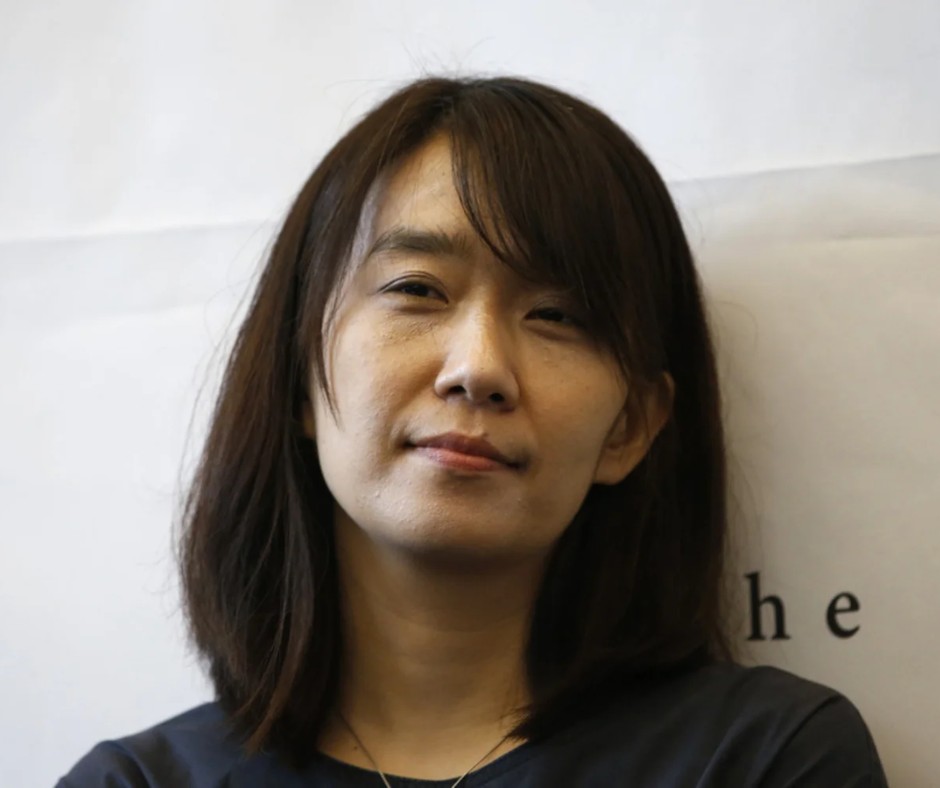For several years now, there has been an alternation in the Nobel Prize for Literature being awarded to female and male authors from different geographical regions. In 2018, the Nobel Prize for Literature was awarded to the Polish novelist Olga Tokarczuk. In 2019, it was bestowed upon the Austrian essayist and playwright Peter Handke. In 2020, it was conferred upon the American poet Louise Glück. In 2021, it was awarded to the English-language writer from Zanzibar, Abdulrazak Gurnah. In 2022, it was presented to the French writer Annie Ernaux. In contrast, the prize was awarded to the Norwegian playwright and novelist Jon Fosse in the previous year. Consequently, it was anticipated that a woman from a non-European cultural background would be triumphant this year. This is precisely what occurred. The award was bestowed upon a relatively young writer, aged fifty-three, from South Korea. It is notable that writers from this country have never before been awarded this prestigious prize.
It is notable that Han Kang did not appear on lists of nominated Nobel Prize favourites, such as those of authors from China, Australia or the United States. Her win is therefore a surprise. However, it should be acknowledged that the Korean writer is not an unknown quantity, having been translated into many languages and having won the Booker Prize in 2016 for “The Vegetarian”. There has been a lot written about the author, who can be considered part of the mainstream and whose texts have on occasion been made into movies (for example, “The Vegetarian” and “Human Acts”).
Polish accents
Despite her worldwide success and well-known name in the literary world, Han Kang was not immune to the critical accusations that circulated around the globe. She was accused of being prematurely honoured with a prestigious award and of originating from an unsuitable background (Lima Kalmteg, a literary critic on Swedish radio) and her prose was denied exceptionality, with her narratives not considered to be ‘great literature’ on a par with the greatest laureates (Bjoern Wiman, a Dagens Nyheter newspaper columnist).
It is worthy of note that four books by the South Korean author have been translated into Polish: “The Vegetarian” (2014), “Human Acts” (2016), “The White Book”(2022) and “We Do Not Part”(2024). “The White Book” is the most closely connected to polish culture, being the result of Han Kang’s literary residency at the University of Warsaw. The collection of poetic prose was intended by the author to function as a metaphorical dressing applied to a metaphorical wound – white gauze. The sixty fragments that comprise the book allow the reader to discern the various meanings associated with the colour white. Additionally, Han Kang’s reflections encompass a visit to the Warsaw Rising Museum and a film shot from an American plane in the spring of 1945, as well as the city of Warsaw itself. The author draws on her own experiences to construct a personal narrative about her deceased sister, whose fate evokes the history of the Polish city. This example demonstrates the author’s ability to reference historical events in a personal and perceptive manner. Additionally, this technique is employed in the book ”Human Acts”, which alludes to the massacre of the population in the Korean woman’s hometown of Kwangju. On 18 May 1980, demonstrations were held by a group of students in opposition to the oppressive actions of General Ch’ŏn Tu-hwan. These demonstrations were subsequently suppressed. The author presents a multitude of perspectives through the voices of various characters, deftly interweaving their stories without imposing a rigid, overarching narrative. Instead, she allows the reader to perceive the nuances of the event through the lens of different characters, evoking a sense of universality in the retelling.
For further insight, see: https://yalereview.org/article/han-kang-nobel-prize
Prose far from grand narratives
While Swedish critics have evaluated the merit of Hang Kang’s prose in comparison to narratives created by renowned writers, the context in which the work of South Korean writer Alex Taek-Gwang Lee of Kyung Hee University in Seoul is situated appears particularly intriguing. The philosopher and cultural scholar illustrates the impact of institutional and financial support from the Literature Translation Institute of Korea (https://www.ltikorea.or.kr/en/main.do ) on the trajectory of a national literature, emphasising the pivotal role of the translator in this process. Deborah Smith, Han Kang’s translator, was able to draw upon the full spectrum of Korean literature as a result of her involvement in the translation funding programme. In selecting this author and her oeuvre, she elected to pursue intimate and personal narratives that proffer a distinctive perspective on Korean literature, in exchange for national themes and a realistic aesthetic. The individual choice of a translator and the institutional choice of the Swedish Academy demonstrate the numerous factors that contribute to achieving international literary success.
It would be erroneous to consider Han Kang’s success as a triumph of the Korean national literary machine in isolation. Such an approach would effectively reduce the writer’s artistic achievement to the success of Korean cultural policy. This tendency to equate national literary success with personal artistic achievement fetishises literature as a tool of national prestige, rather than appreciating it as an art form. As Professor Taek-Gwang Lee observes, this perspective has been the subject of critical commentary in the Korean media, prompting a re-evaluation of the nationalistic approach to literary achievement.
The Nobel Prize for Literature winner’s intimate prose is not a grand realist narrative. Despite the intensity of the suffering it conveys to the reader, it consistently presents an affirmative view of the world and the value of coexisting and cothinking with it. However, it does not provide definitive answers to key questions. In essence, Han Kang’s prose, which depicts the repulsive world of the Anthropocene era, suggests that by observing the world, we can perceive the resonances occurring within it and endeavour to establish symbiotic relationships with its diverse manifestations. This is exemplified by the protagonist of “The Vegetarian”, who gazes at the trees and is thereby able to perceive the interconnectedness of all things.
Main photo: AP



